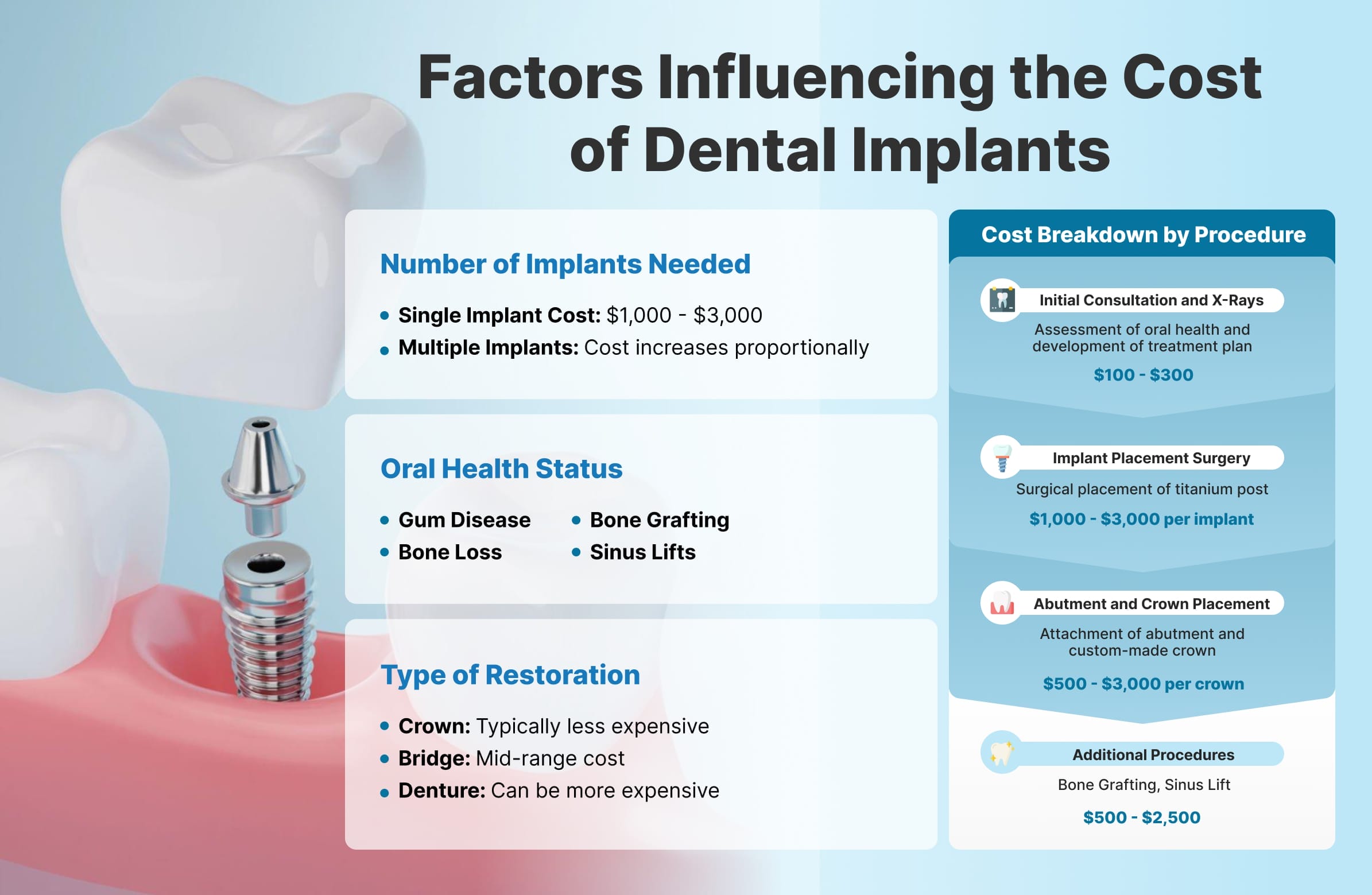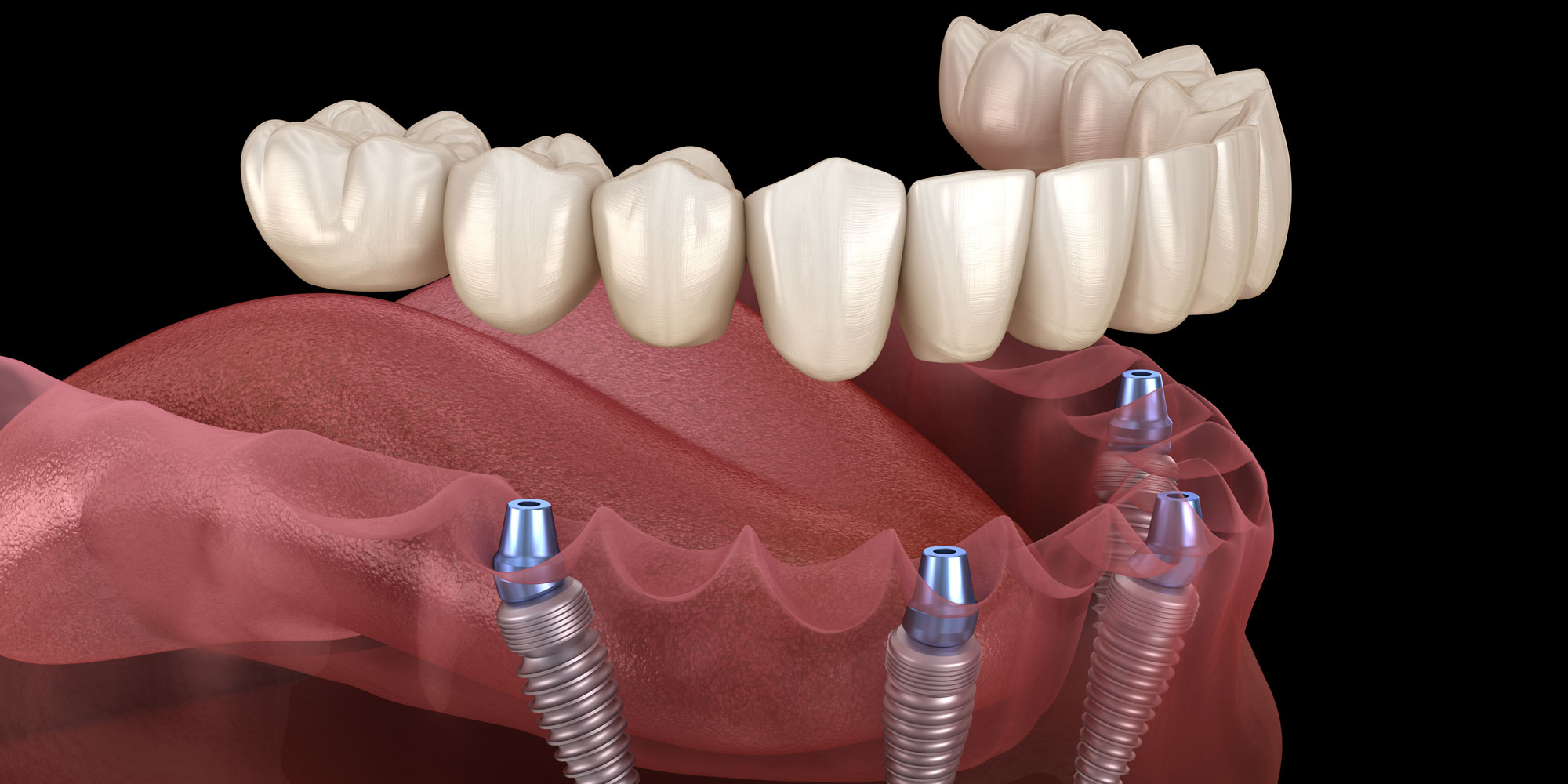The Basic Principles Of Dental Sense
Table of ContentsTop Guidelines Of Dental SenseIndicators on Dental Sense You Should KnowThe Basic Principles Of Dental Sense Dental Sense Fundamentals Explained
are medical devices surgically implanted into the jaw to restore an individual's ability to eat or their appearance. They give assistance for artificial (phony) teeth, such as crowns, bridges, or dentures. When a tooth is lost as a result of injury or condition, an individual can experience problems such as fast bone loss, faulty speech, or adjustments to eating patterns that result in pain.Oral dental implant systems consist of a dental implant body and dental implant joint and might additionally consist of a joint fixation screw. Same day dental implants. The dental implant body is surgically put in the jawbone instead of the tooth's origin. The dental implant abutment is usually affixed to the implant body by the abutment addiction screw and prolongs with periodontals right into the mouth to support the attached synthetic teeth
(https://forums.hostsearch.com/member.php?274218-dentalsense1)Structure of The Dental Implant System selecting dental implants, speak with your oral copyright regarding the potential benefits and risks, and whether you are a prospect for the procedure. Things to think about: Your total health and wellness is a vital consider determining whether you are a great prospect for oral implants, for how long it will require to heal, and exactly how long the dental implant might remain in area.
Cigarette smoking might impact the recovery procedure and lower the long-term success of the dental implant. The recovery procedure for the dental implant body might take several months or longer, during which time you typically have a short-term abutment instead of the tooth. the dental implant procedure: Thoroughly follow the dental health guidelines provided to you by your oral supplier.
The 10-Second Trick For Dental Sense
Implant failure can cause the requirement for another operation to fix or change the implant system. Brings back the ability to eat Brings back aesthetic look Assists keep the jawbone from shrinking as a result of bone loss Protects the wellness of the bordering bone and periodontals Assists keep adjacent (neighboring) teeth stable Improves top quality of life Damages to surrounding all-natural teeth during dental implant placement Injury to the surrounding cells throughout surgical procedure, such as sinus perforation Injury throughout surgical procedure (for example, fracture of surrounding jawbone) Inadequate feature, such as really feeling like the teeth do not bite with each other usually An experience that the tooth is loose or twisting in position arising from an abutment screw loosening Implant body failure (looseness of the implant body) as a result of systemic infection, which might be most likely in individuals with unchecked diabetes mellitus as a result of regional infection in bone and periodontals sustaining the dental implant body as a result of delayed healing, which might be more probable in patients that smoke Difficulty cleaning the gum tissues around the implant, resulting in poor dental hygiene Neglected gum disease Post-surgical feeling numb due to nerve impingement or damage Constantly inform healthcare companies and imaging service technicians that you have dental implants before any magnetic resonance imaging (MRI) or x-ray procedures.
FDA is not knowledgeable about any negative occasions reported for MRI or x-ray procedures with dental implants. Oral implants systems are usually made from materials that follow global agreement criteria of the International Organization for Standardization (ISO) or ASTM International. These standards have details of what makes a safe material.

An oral implant is a framework that changes a missing tooth. With screw-like devices, the cosmetic surgeon inserts an implant into the jawbone, and click here for more it serves as a support for a man-made tooth, called a crown. A gadget called an abutment links the synthetic tooth to the dental implant. The crown is customized to fit the individual's mouth and match the color of their teeth.
The 7-Minute Rule for Dental Sense
Some individuals are not eligible for dental implant surgical procedure. It is for dental doctors to operate individuals with: intense illnessuncontrollable metabolic diseasebone or soft tissue disease or infectionIf these issues are resolved, an individual can have the surgical procedure. In, dental cosmetic surgeons abstain from operating people with: If people with any one of the above go through oral implant surgical treatment, there is a greater threat of the dental implant failing.

Oral implant surgical treatment is an individualized process. It's not the very same for everyone. The adhering to offers a general review of what you can anticipate your dental practitioner, oral doctor, periodontist or prosthodontist to do: Place the dental implant surgically. Offer you time to heal. Affix the blog post and last crown, bridge or denture.
Next off, your specialist will carefully place the dental implant into your jaw. Your doctor will reposition your periodontals and shut the laceration with stitches. If your dental implant is near the front of your mouth, your dental expert will make a short-term tooth for you to use till you recover. In this way, you won't have a space in your smile while you recoup.
Not known Incorrect Statements About Dental Sense
Throughout the recovery phase, your jawbone must fuse to the oral implant. This process can take anywhere from 3 to 9 months.
As soon as your dental implant heals, your dental practitioner can attach the abutment (small connector post) and your last remediation (crown, bridge or denture). This usually takes regarding one hour to finish and may require a 2nd minor surgery. You should not really feel any discomfort during your oral implant procedure because your company will make use of drug to numb your gum tissues.